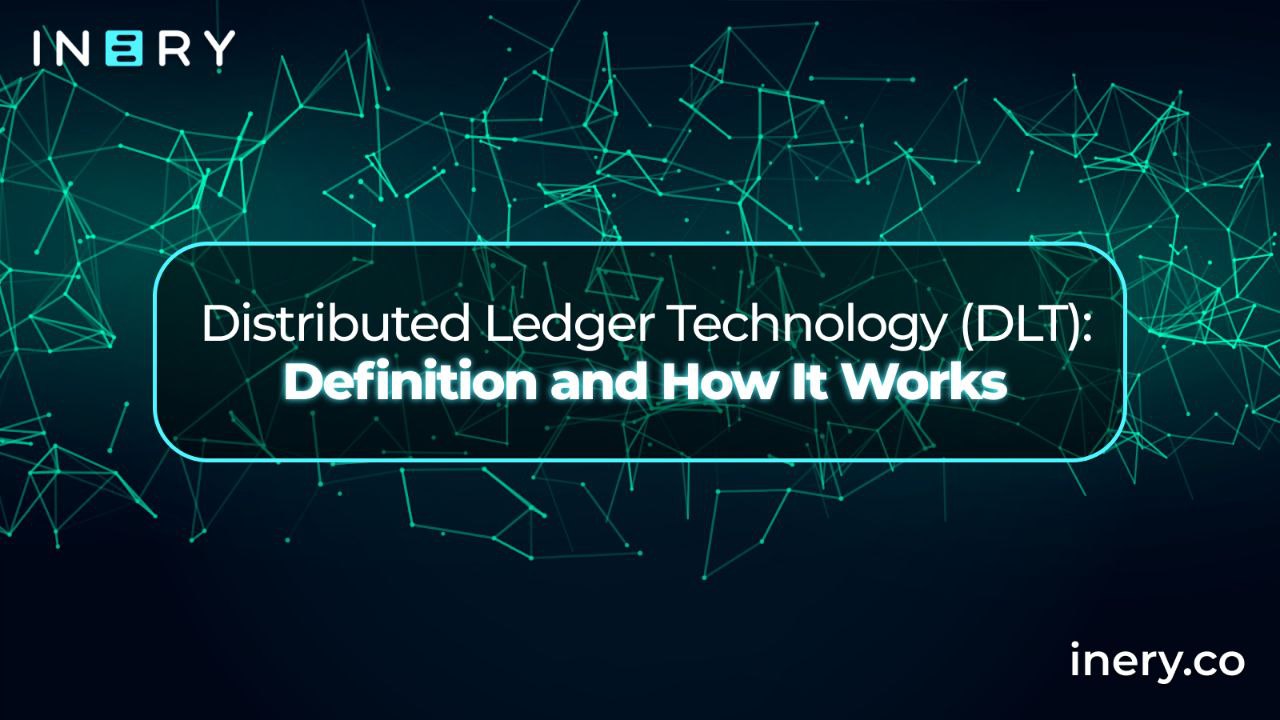Data privacy has become a critical concern in the era of artificial intelligence (AI), where vast amounts of personal and sensitive data are processed and analyzed.
Blockchain technology, known for its decentralized and immutable nature, offers promising solutions to enhance data privacy and security in AI systems.
Today, we will explore the historical context of data privacy, the integration of blockchain technology in AI, and conclude with a detailed examination of how Inery's blockchain solutions are revolutionizing data privacy in AI systems.
Let’s start with some history.
Historical Context of Data Privacy
The concept of data privacy dates back to the early days of computing in the 1960s and 1970s when businesses and governments began to recognize the need to protect sensitive information stored in computer systems.
Initially, data security measures were rudimentary, focusing on physical security and basic access controls. However, as computer usage proliferated and the volume of sensitive data increased, more sophisticated security protocols became necessary.
The 1990s and early 2000s saw the advent of the internet, leading to exponential growth in data generation and sharing. This period also marked the rise of cyber threats, including data breaches and hacking incidents, underscoring the need for resilient data security and privacy measures.
Governments worldwide responded by enacting data protection regulations, such as the European Union's General Data Protection Regulation (GDPR) and the United States' Health Insurance Portability and Accountability Act (HIPAA), to safeguard personal information.
Introduction to AI and Its Data Privacy Challenges
In the past year or so, we've been increasingly focused on AI, particularly due to the availability of large language models like ChatGPT. These advancements have sparked widespread discussion and excitement, but what do they actually entail?
Artificial Intelligence (AI) refers to the simulation of human intelligence in machines that are designed to think and act like humans. These systems can learn from experience, adjust to new inputs, and perform tasks that typically require human intelligence, such as visual perception, speech recognition, decision-making, and language translation.
AI technologies are becoming increasingly integral across various industries, from healthcare and finance to transportation and entertainment.
Dangers Regarding Data and AI
AI systems require vast amounts of data to train models and improve their accuracy, introducing several data privacy challenges.
These systems often collect personal and sensitive data, including demographic information, behavioral patterns, and biometric data, which can lead to privacy invasions if not properly managed. Centralized storage of large datasets creates single points of failure, making them attractive targets for cyberattacks, and unauthorized access can result in data breaches exposing sensitive information.
Additionally, AI models can inadvertently learn and perpetuate biases present in the training data, leading to discriminatory outcomes. Ensuring data privacy involves addressing these biases to prevent unfair treatment of individuals.
Many AI algorithms operate as "black boxes," making it difficult to understand their decision-making processes, which hinders accountability and raises concerns about the misuse of personal data.
Furthermore, individuals often have limited control over their data once it is collected and used by AI systems. Ensuring that data collection practices respect user consent and data ownership rights is crucial for maintaining privacy.
Blockchain Technology and Data Privacy
Blockchain technology, characterized by its decentralized ledger system, offers a transformative approach to data privacy. The key attributes of blockchain that contribute to enhanced data privacy include:
-
Decentralization: Unlike traditional centralized databases, blockchain stores data across a network of nodes, eliminating single points of failure and reducing the risk of data breaches.
-
Immutability: Once data is recorded on a blockchain, it cannot be altered or deleted, ensuring the integrity and authenticity of data.
-
Transparency and Accountability: Blockchain provides a transparent record of all transactions, making it easier to track data access and modifications, thereby enhancing accountability.
-
Encryption and Access Control: Advanced cryptographic techniques secure data on the blockchain, and access control mechanisms ensure that only authorized users can access sensitive information.
Enhancing AI Systems with Blockchain
AI systems rely on vast datasets to train models and generate insights, but the centralized storage of these datasets poses significant privacy and security risks. Integrating blockchain technology with AI offers a promising solution to these challenges.
Blockchain ensures data integrity by making the data fed into AI models tamper-proof, which enhances the reliability and trustworthiness of AI outputs. Decentralized data storage further mitigates risks by spreading data across a distributed network, reducing the likelihood of data breaches and unauthorized access.
Smart contracts, which are self-executing contracts with predefined rules, can automate data access permissions, ensuring consistent enforcement of data privacy policies.
Additionally, blockchain's encryption capabilities protect sensitive data, making it accessible only to authorized entities and preventing unauthorized exposure. This combination of technologies can significantly bolster the privacy and security of AI systems, providing a reliable framework for managing and protecting data.
Inery's Revolutionary Approach to Data Privacy in AI Systems
Inery, a pioneering blockchain platform, exemplifies the potential of blockchain technology in enhancing data privacy for AI systems. Inery's decentralized database management system, IneryDB, integrates blockchain features to provide a secure and efficient solution for data storage and management.
IneryDB: A Decentralized Data Management System
IneryDB leverages a multi-model database management approach, supporting both SQL and NoSQL functionalities. It uses a sharding mechanism to distribute data efficiently across multiple nodes, enhancing decentralization and performance. IneryDB's key features include:
-
Optimized Consensus Algorithm: Inery employs a self-delegated proof-of-stake (SDPoS) consensus mechanism, ensuring high throughput and low latency even in the presence of malicious nodes. This mechanism enhances the security and efficiency of data transactions.
-
Data Encryption and Access Control: IneryDB uses advanced encryption techniques to protect user data. Access control is managed through value contracts, which are smart contracts that automate data access permissions and ensure compliance with privacy policies.
-
AI Integration: Inery's AI-enabled consensus mechanisms optimize the blockchain's performance, making it suitable for managing the large datasets required by AI systems. Integrating AI helps maintain the network's integrity and ensure efficient data processing.
-
Interoperability and Scalability: Inery's blockchain-based database management system was designed to be interoperable with other blockchain networks and scalable to handle increasing data loads, making it ideal for enterprise applications.
Conclusion
Blockchain technology holds significant promise for enhancing data privacy in AI systems. By leveraging the decentralized, immutable, and transparent nature of blockchain, organizations can ensure the security and integrity of sensitive data.
Inery's innovative blockchain solutions, particularly IneryDB, exemplify how blockchain can revolutionize data privacy, providing reliable, scalable, and efficient data management for AI applications.
As AI continues to evolve, the integration of blockchain technology will be crucial in addressing data privacy challenges and building trust in AI systems.

Inery•
2 years ago
The Priceless You: Uncovering the Untold Value of Personal Data
Uncover the hidden value of your personal data in the digital realm, where tech giants thrive on your information. ...READ MORE
-1700735858.png)
Share

Inery•
1 year ago
Distributed Ledger Technology (DLT): Definition and How It Works
From trust to transparency, Distributed Ledger Technology (DLT) offers industries a secure, collaborative way to manage data without relying on intermediaries. ...READ MORE

Share

Inery•
1 year ago
Is There Such a Thing as Too Much Data?
Overwhelmed by the digital clutter? Discover why too much data isn’t the problem. It’s the lack of organization. Learn how tools like Inery can transform digital chaos into a streamlined, secure, and efficient system. ...READ MORE

Share

Inery•
10 months ago
Inery Roadmap 2025: What We’ve Building Together
Discover what’s next for Inery in 2025. From smarter data tools to seamless integrations, here’s how we’re building a better way to manage data, together with the community. ...READ MORE

Share
Most popular today


-1697699665.png)